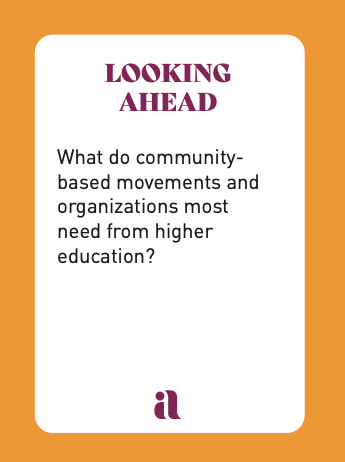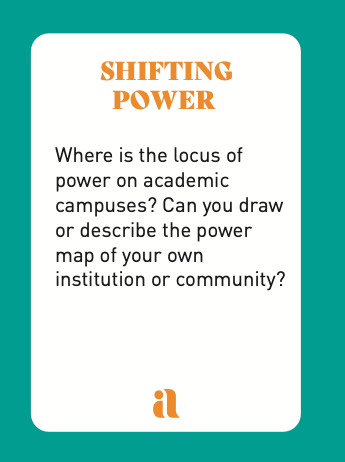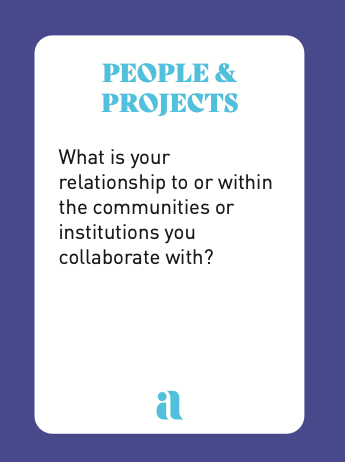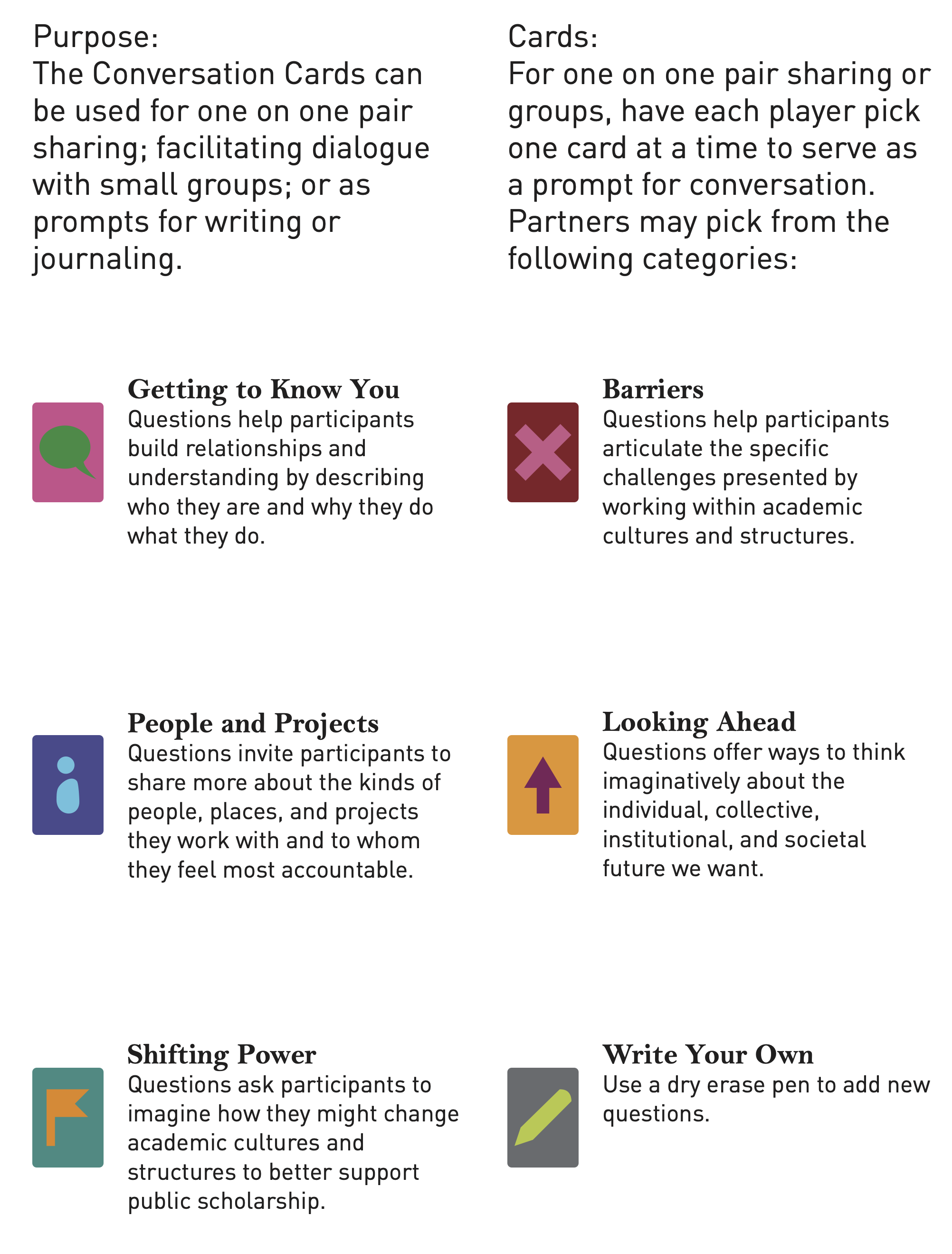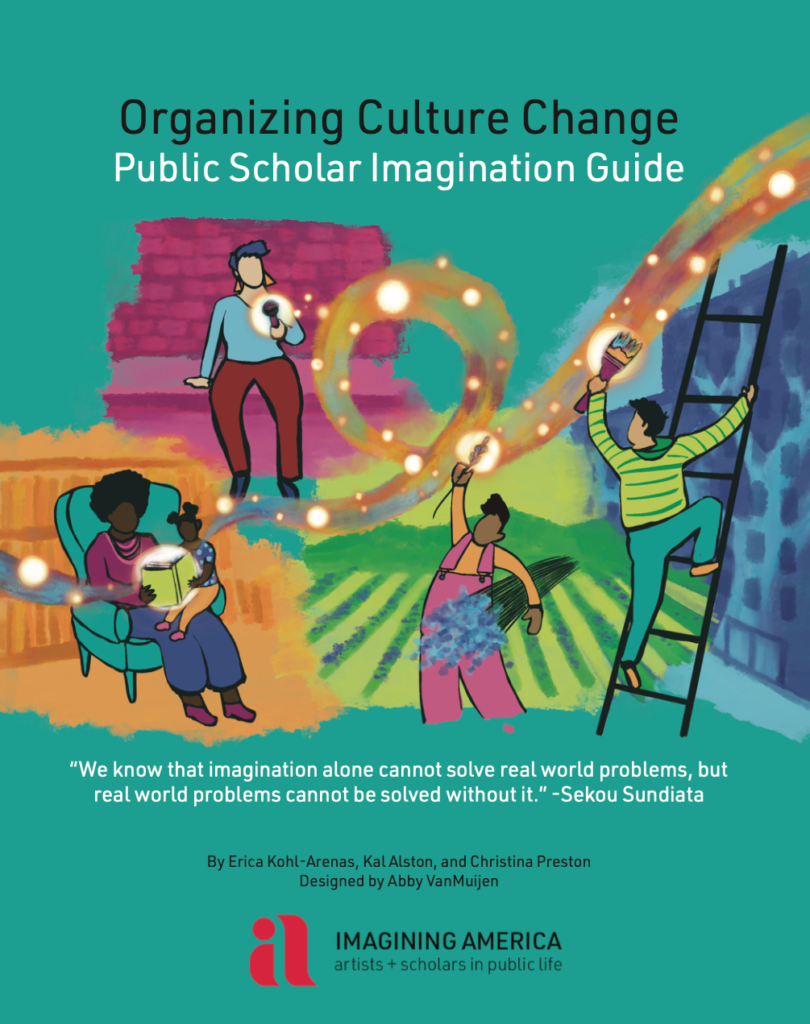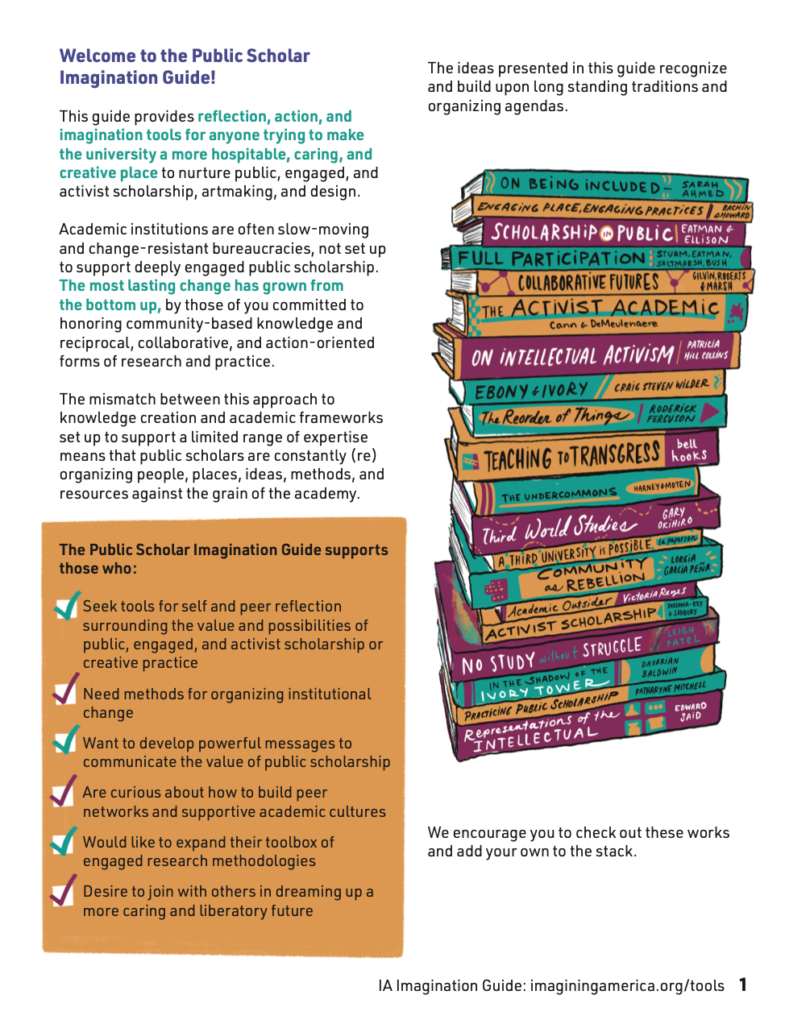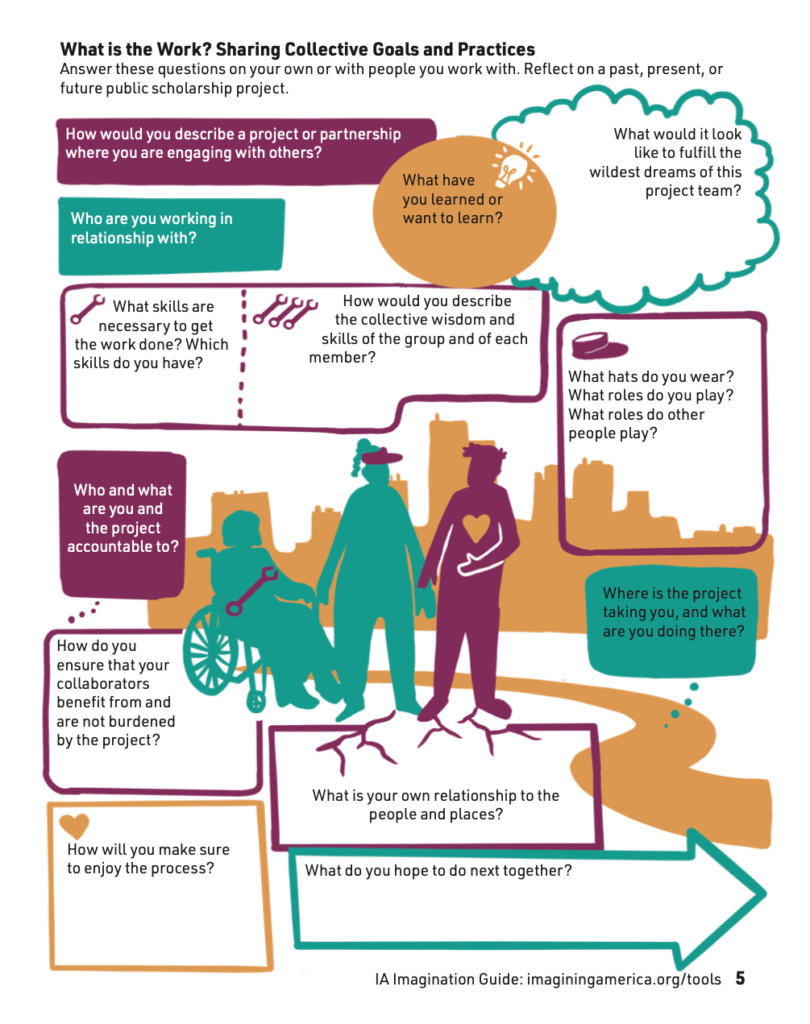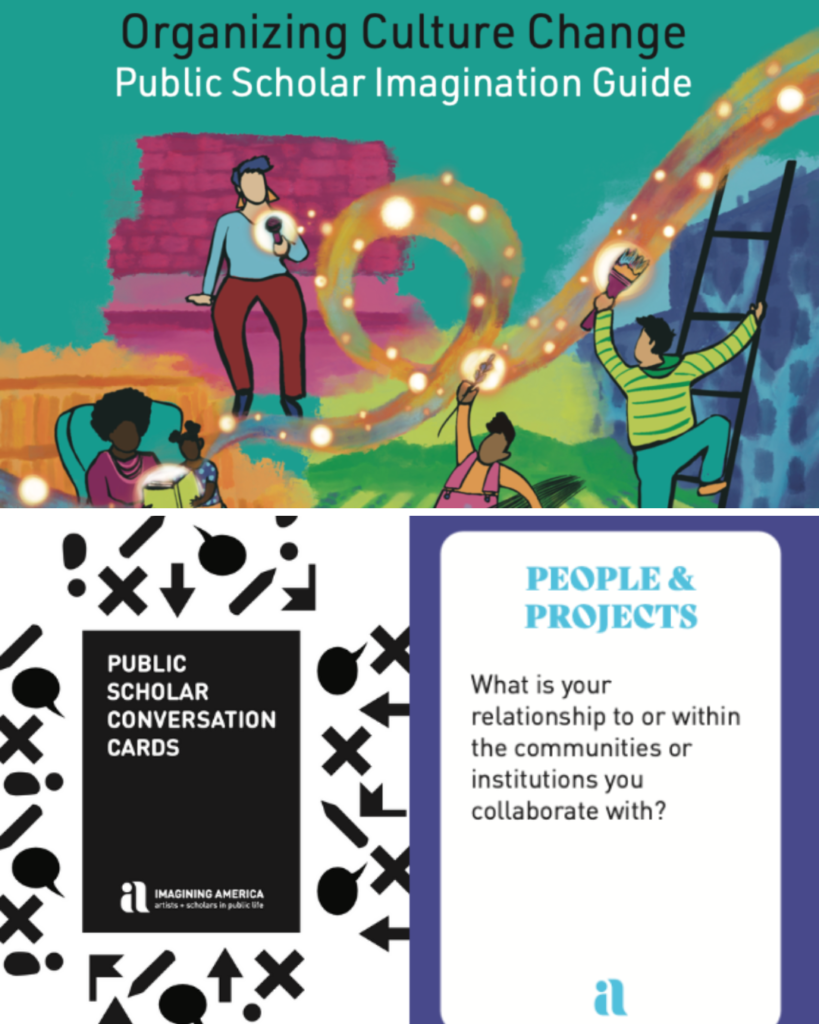Inspired by the findings of IA’s Leading and Learning Initiative action research, two pedagogic tools are now available to inspire reflection and action for public scholars. Tools are available for purchase through the IA Marketplace. If you have any questions, reach out to us at connect@imaginingamerica.org.
Public Scholar Conversation Cards
The Public Scholar Conversation Cards are designed to spark conversation about the joy, contributions, and struggles of public artists, designers, and scholars. The main purpose of the card deck is to break the silence surrounding elite academic cultures that value a limited range of understandings of what kinds of knowledge matters and to nurture supportive relationships and environments for public scholars to thrive. Intended users include college and university students and faculty, center and program staff, advisors and advocates, and community leaders, culture bearers, and artists who have experience working with academic institutions. The questions posed encourage public scholars to reflect on why their work matters and how it challenges academic culture and produces critical knowledge to tackle pressing public issues.
Public Scholar Imagination Guide
The Public Scholar Imagination Guide provides a variety of reflection and action tools for anyone trying to improve their own practice and for those interested in making the university a more hospitable, caring, and creative place to nurture public, engaged, and activist scholarship, artmaking, and design. IA research has revealed the many ways that academic institutions are not designed to support deeply engaged public scholarship. We learned that the most lasting change has grown from the bottom up, by those of you committed to honoring community-based knowledge and reciprocal, collaborative, and action-oriented forms of research and practice. The mismatch between this approach to knowledge creation and academic frameworks set up to support a limited range of expertise means that public scholars are constantly (re)organizing people, places, ideas, methods, and resources against the grain of the academy.
